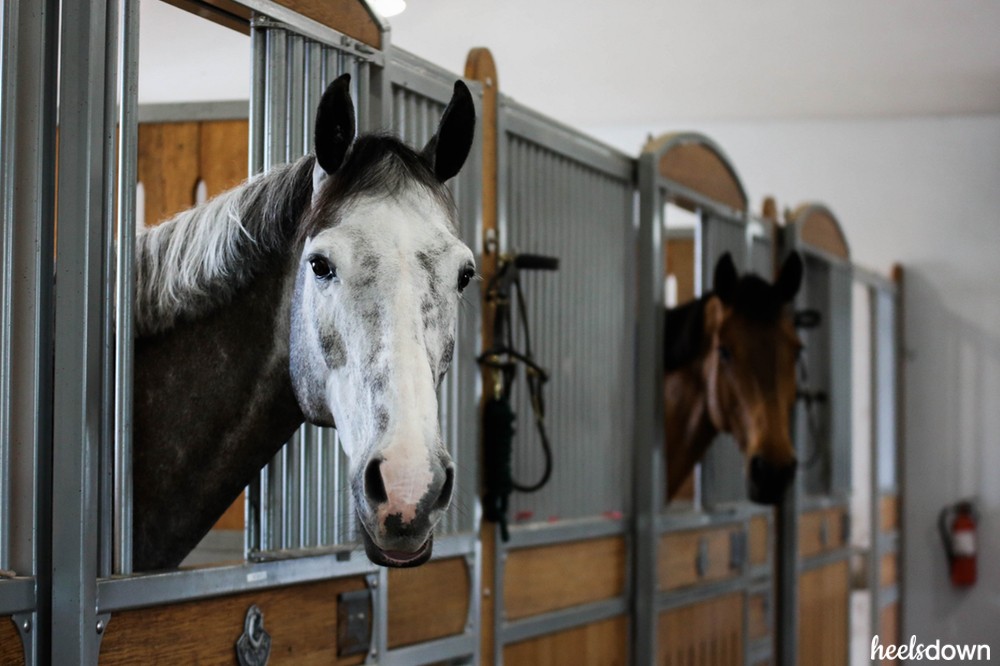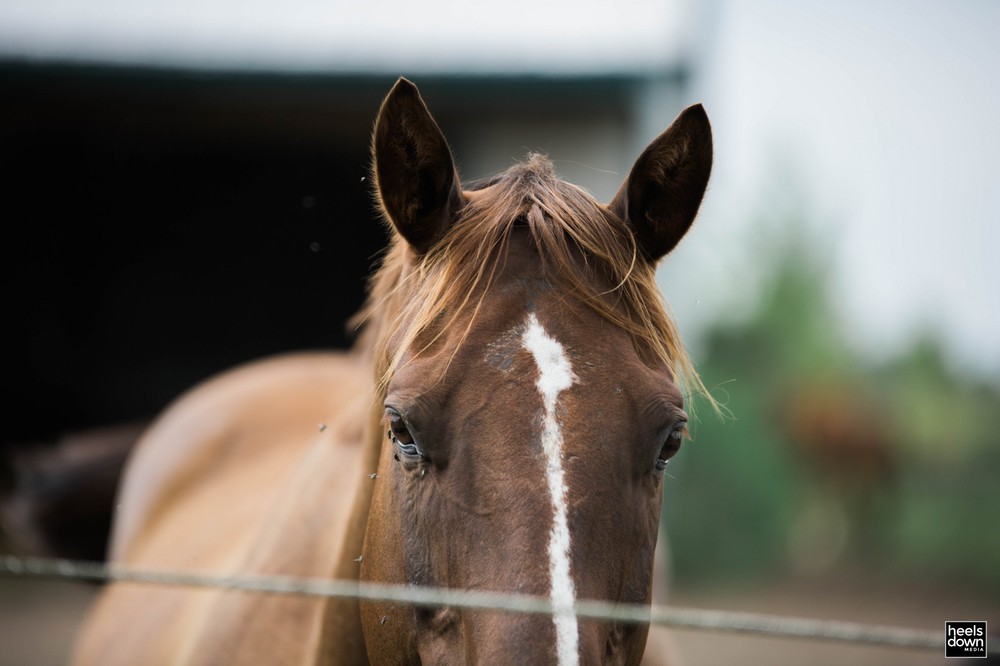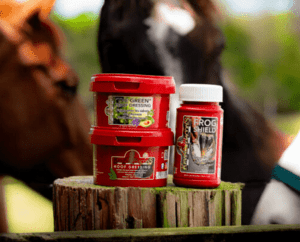To Vaccinate Or Not? Everything You Need To Know, Presented by Wahl

Show horses have their own set of disease risks, as they often interact with new horses and cross geographic regions.
This article first appeared in the May 2018 issue of Heels Down Magazine. For more stories worth reading, subscribe now in the app.
As owners and caretakers, it can be difficult to determine what our horses truly need versus what’s extraneous — or even dangerous. Vaccinations are no different.
Over the past 10 years or so, many veterinarians in the small animal world have changed their vaccination protocols, moving to give core canine vaccines such as distemper, parvovirus, and rabies every three years rather than annually. As this trend has yet to take hold in the horse world, some have wondered if perhaps horses are being over-vaccinated and unnecessarily exposed to vaccination risks.
One proponent of less frequent vaccination is Dr. W. Jean Dodds, an equine vaccination and nutrition expert in Garden Grove, Calif., who has written extensively on the topic. She recommends taking titers, which analyzes the blood for antibodies to determine a horse’s level of immune protection against each respective disease. She suggests vaccinating only when titer levels aren’t adequate.
“In general, serum antibody titers to the ‘core’ vaccines along with any natural exposures last considerably longer than suggested by the vaccine label booster recommendations,” she wrote in a post on her Pet Health Resource blog. “This corresponds with what we see clinically as the number of cases, illnesses and deaths due to these diseases has decreased in the vaccinated population. So, in contrast to the concerns of some practitioners, using vaccine titer testing as a means to assess vaccine-induced protection will likely result in the animal avoiding needless and unwise booster vaccinations.”
Read this next: Toxic Feed, Lethal Consequences
“Standard” vaccination programs don’t exist, as each horse’s situation is unique. Disease risk, vaccine efficacy, and individual horse health can all affect protocols. Although it’s confusing, do develop a vaccination program for your horse, whether you choose to vaccinate each year or go the titer route.

“Vaccinations are important, as they reduce the spread of disease,” says Dr. Laura Petroski, a veterinarian with Kentucky Equine Research. The antibodies that horses’ bodies produce after vaccine administration prepare their immune systems for future exposure to these same types of viruses or bacteria, which means less severity of symptoms and reduced duration of illness.
Basic Requirements and Options
Dr. Petroski says the truly needed vaccines for all horses are those the American Association of Equine Practitioners (AAEP) lists as core vaccines: eastern/western equine encephalomyelitis (EEE/WEE), rabies, tetanus, and West Nile virus (WNV). The AAEP defines as core are those that “protect from diseases that are endemic to a region, those with potential public health significance, required by law, virulent/highly infectious, and/or those posing a risk of severe disease.”
“Standard” vaccination programs don’t exist, as each horse’s situation is unique.
Many other vaccinations are optional and recommended based on risk, including geographic considerations and foaling status. For example, Potomac Horse Fever (PHF) occurs near river basins, so horses that don’t live near one, might be able to skip it. Leptosporosis is found worldwide but is a greater risk in warmer, tropical climates, where there are common interactions with wildlife and near standing water. Other optional viruses include Equine Herpes Virus (EHV/Rhino), Equine Influenza, rotavirus, Equine Viral Arteritis (EVA), botulism, anthrax, and Strangles. Consult with a local veterinarian to determine what regional and individual risks may apply to your horse.

Show horses have their own set of disease risks, as they often interact with new horses and cross geographic regions. A Strangles vaccination is often recommended for this reason, and there are other specific vaccination requirements set by each state for travel across state lines. For more information, visit the USDA’s APHIS and the AVMA websites to learn more about local requirements.
If going the titer route, the following have titer tests available:
• Equine Herpes (rhino)
• Potomac Horse Fever
• Equine Encephalitis (EEE, WEE, VEE)
• Equine Viral Arteritis
• Equine Influenza
• Rabies Virus
• West Nile Virus
If vaccinating based on a titer program, note that each of the above have different vaccine efficacy lengths, and each has a different titer level required for immunity.
When to Vaccinate
For adult horses that often leave the property and interact with other horses, Dr. Petroski recommends the schedule below. If horses don’t leave the farm, once or twice a year for vaccines such as Rhino (EHV) and influenza is all that’s needed.
January: Rabies, botulism, Influenza/Rhino combo, and tetanus
April: EEE/WEE, WNV, Rhino, and PHF
July: Influenza/Rhino combo
August: WNV and PHF
October: Rhino
Pregnant Mares
Before breeding, horses should be up to date on the core vaccines plus given the EVA vaccine. There are additional shots that pregnant mares need, such as rotavirus and botulism, and they should receive the Equine Herpes Virus (Rhino) vaccine every 60 days.
“Specific vaccines are given during specific gestation months so that the foal is protected in utero and receives incredibly important antibodies from the mother to protect it once it’s born,” explains Dr. Petroski.
If breeding a mare, set up a vaccination schedule in advance with the advice of your veterinarian.
Reducing Risks
For all vaccines, some horses experience mild effects such as localized swelling and soreness, fever, loss of appetite, or lethargy. On the more severe side would be difficulty breathing, collapse, colic, or hives — call a veterinarian immediately for any of these reactions.
Like this article? Try: Dazed And Confused: Is Hemp Safe For My Horse?
“There is always a risk of an adverse reaction when giving vaccines. However, they are usually safe with low risk of side effects,” says Dr. Petroski.
Always monitor horses 30 minutes after administration of a vaccine to check for severe allergic reactions and then one-or-two times daily for any abnormal heat or swelling. If a horse is slightly swollen or feverish, consider giving an NSAID such as banamine or bute until the signs subside.

Note how each horse reacts, and alter future vaccination plans accordingly. For example, if localized reactions occur, the horse could receive separate rather than combination vaccines in the future.
To reduce the risk of skin infection, clean the areas where vaccines will be administered. When selecting a vaccination location, avoid the hip or gluteal region, as those areas have increased risk of abscesses.
Keep in Mind
Vaccines begin to work immediately, but full protection takes about two weeks. Dr. Petroski recommends vaccinating three weeks before a risk of exposure to disease.
However, there are additional timing considerations. “Don’t vaccinate a horse two-to-three weeks prior to any stressful event, as additional stress may increase the risk of adverse reactions,” she warns.
Before herd introduction, quarantine any new horse for one month, and get a thorough vaccine and disease history on the horse.



